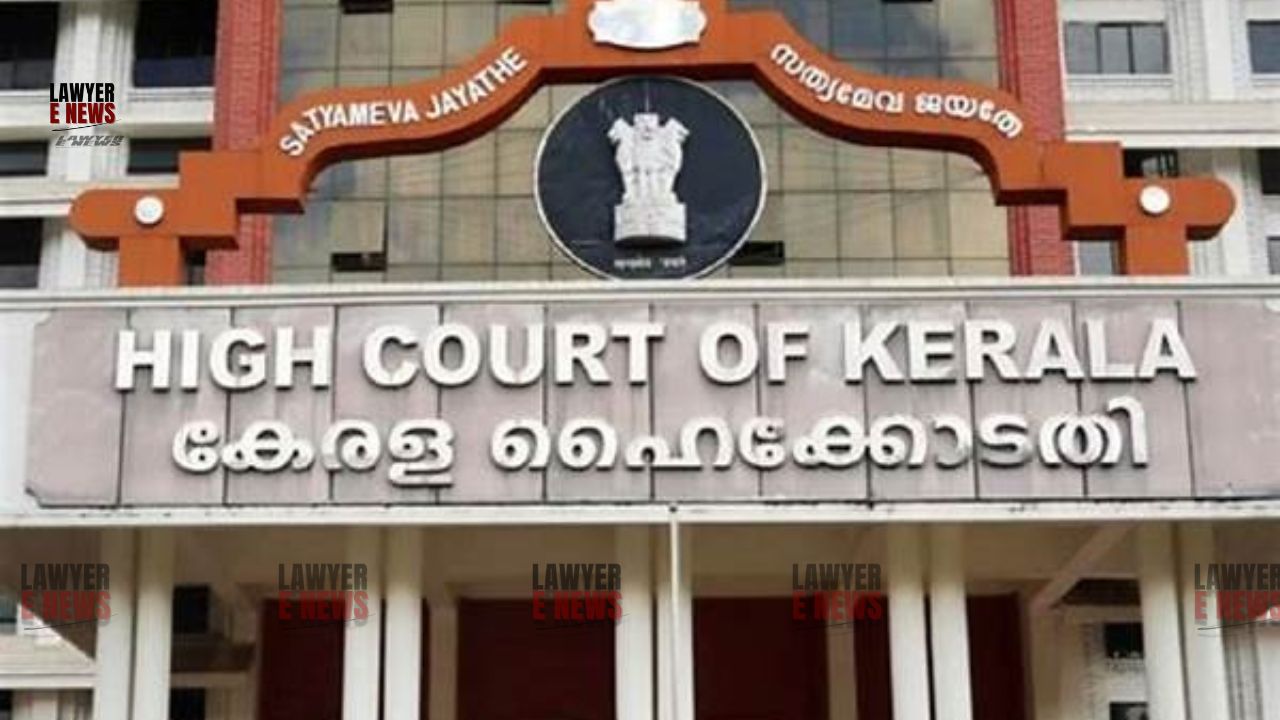-
by sayum
14 February 2026 2:22 PM



Today, the Kerala High Court in WP(C) No. 26132 of 2024 upheld the disqualification of four members of East Eleri Grama Panchayat under the Kerala Local Authorities (Prohibition of Defection) Act, 1999. The court ruled that the petitioners, who contested elections using the Revolutionary Marxist Party of India (RMPI)’s symbol, were rightly disqualified by the Kerala State Election Commission for defying a party directive and supporting a rival candidate.
The case originated after the 2020 General Election to Local Self-Government Institutions in Kerala, where the petitioners contested as candidates in East Eleri Grama Panchayat using RMPI’s symbol, "Football." Following the election, the Indian National Congress (INC) and RMPI formed an alliance to elect a Panchayat President. However, the petitioners supported a rival candidate, violating the RMPI’s whip, leading to the Election Commission's disqualification order on July 2, 2024.
The primary legal issue was whether the petitioners were bound by RMPI's directives despite their claim of being independent candidates. The court examined whether the use of RMPI’s symbol made them members of the party, which subjected them to the Kerala Local Authorities (Prohibition of Defection) Act.
The petitioners contended that they were independents under the Democratic Development Front (DDF), and the symbol "Football" was used merely out of convenience, not as RMPI members. However, the Election Commission determined that the petitioners were deemed RMPI members as they had used its symbol, supported by letters from RMPI’s State Secretary.
The High Court dismissed the petitioners' claims, holding that the use of RMPI's symbol placed them under the party’s purview. According to the Local Authorities Election Symbols (Reservation and Allotment) Order, 2017, when a political party recommends its symbol to a candidate, that candidate is "deemed to be set up by the political party".
Justice Mohammed Nias C.P. emphasized that the Election Commission’s finding was consistent with the law. The court ruled that the petitioners’ act of supporting a rival candidate despite RMPI's instructions amounted to voluntary defection, invoking disqualification under Section 3 of the Kerala Local Authorities (Prohibition of Defection) Act.
The Kerala High Court validated the disqualification order by the Election Commission, reinforcing the principle that candidates who contest using a political party’s symbol are bound by its directives. The court's ruling underscores the stringent application of anti-defection laws in local body elections.
Date of Decision: September 26, 2024
Jiji Thomas and Others vs Kerala State Election Commission and Joseph Mutholi
